In Brexit-era London, a mosque sits between two types of hate
Terrorism and shifting politics have left mainstream Muslims feeling wary in one of the Western cities that has been most open to them
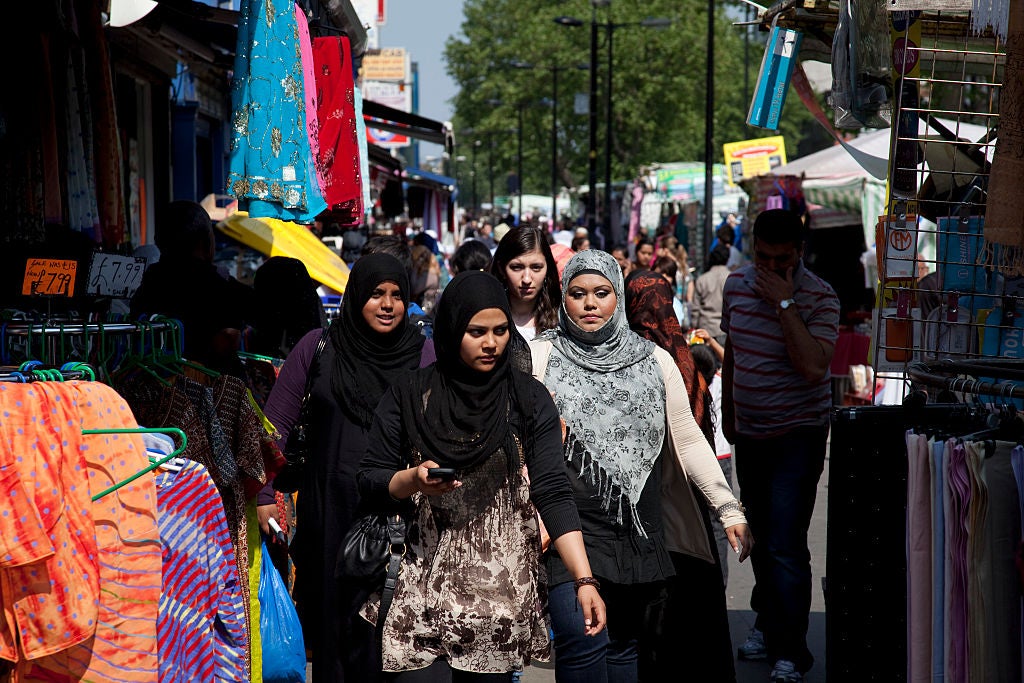
Behind a glass door inside Al Madina Mosque, Ashfaq Siddique stands at ramrod attention, his eyes darting. He is the mosque’s guiding spirit. He is also a former policeman with Scotland Yard. He is scanning live feeds from 36 closed-circuit cameras that monitor everything from the prayer hall to the ablutions room. He is searching for trouble.
None in the parking lot, where white nativists routinely throw nails over the walls to puncture the car tires of those praying inside. Nor in the main hall, where Islamic extremists have sometimes argued against democracy with mainstream imams.
This morning, the problem is overcrowding. So many Muslims now live in the working-class East London neighbourhood of Barking that roughly 9,000 people attended the morning prayer sessions in early September to begin the holiday of Eid al-Adha.
“Upstairs is filling up — start moving them to the upper hall of the community centre!” Siddique, 50, shouts into a yellow walkie-talkie.
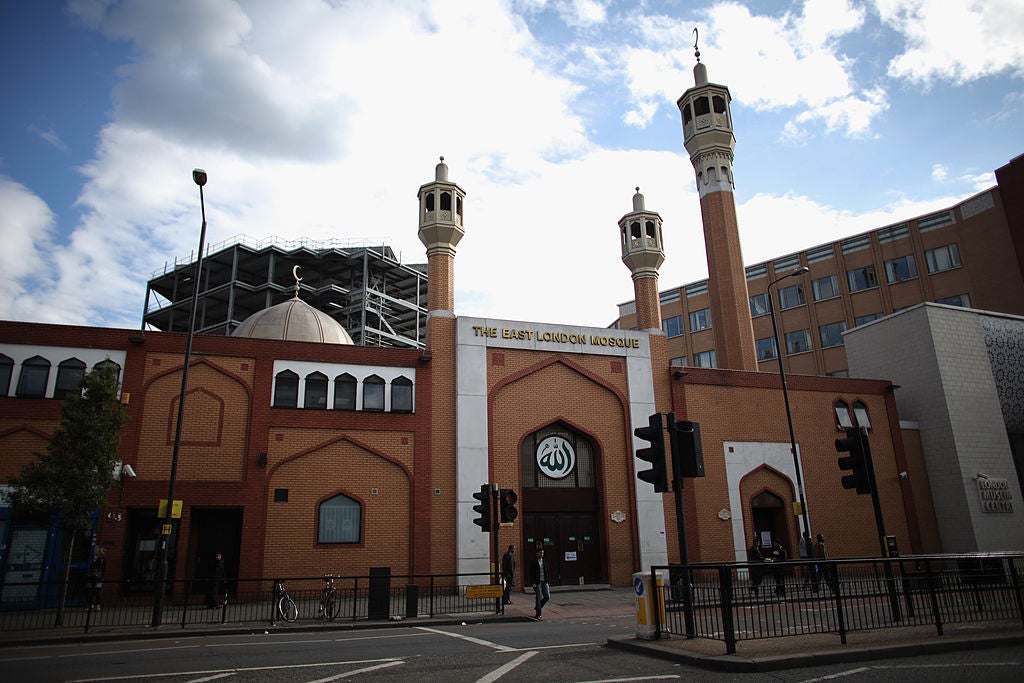
Few, if any, major Western cities have been more open to Muslims than London. More than 12 per cent of Londoners are Muslim. Eighteen months ago, this became the first Western capital to elect a Muslim mayor, a milestone for residents proud of their multicultural ethos.
Now, though, religious hate crimes are up nearly 30 per cent, primarily against Muslims. At his mosque, Siddique is hiring extra security guards to protect his congregants. Muslim women have complained about being spit on, or cursed.
What has brought these tensions to the surface? Brexit and terrorism.
Britain’s unexpected vote in June 2016 to exit the European Union – only a month after London elected Sadiq Khan as mayor – was fuelled by a nationwide campaign infused with anti-Muslim, anti-immigrant venom. Then, after a decade without Islamic terrorist attacks, this year Britain has suffered four, including an assault by Islamic terrorists in June that killed eight people at London Bridge and Borough Market.
Even as crowds of Londoners came out to mourn – and to show their commitment to the city’s inclusive spirit – the dynamics of daily life shifted for many mainstream Muslims. Brexit and the terrorist attacks have given bigots license to express hostility, many Muslims say, or to label them all as terrorists, or to tell them to go home – as if London were not their home.
“People feel they have the right to be open about Islamophobia,” said Saima Ashraf, a local council member in Barking and a French-Palestinian immigrant. “Or to be open about their racial views, or just to be a bit more nasty.”
The Brexit vote stunned many Londoners – the city voted heavily to remain in the European Union – but not Siddique. His borough of Barking and Dagenham was one of the few in London that voted to leave, and it did so by a ratio of nearly 2-1. Many whites there saw a vote for Brexit as a vote against immigration and Islam.
For years, Al Madina Mosque has sat uncomfortably on a fault line between the Islamic radicalism of the terrorist attacks and the white nativism intertwined with Brexit.
One of the plotters of the London Bridge attack, Khuram Butt, was radicalised a few blocks to the north, in Ilford. There, a notorious jihadi recruiter, Anjem Choudary, built a following before going to jail last year, even as Siddique sought to keep him from influencing congregants at Al Madina.
Siddique has also clashed with Peter Harris, a local politician based a few miles to the east in Dagenham. Harris has made a career out of thwarting the opening of Muslim prayer spaces, as Dagenham has become a “white British” stronghold in a borough that has seen a demographic transformation from a flood of new Muslim residents during the past 15 years.
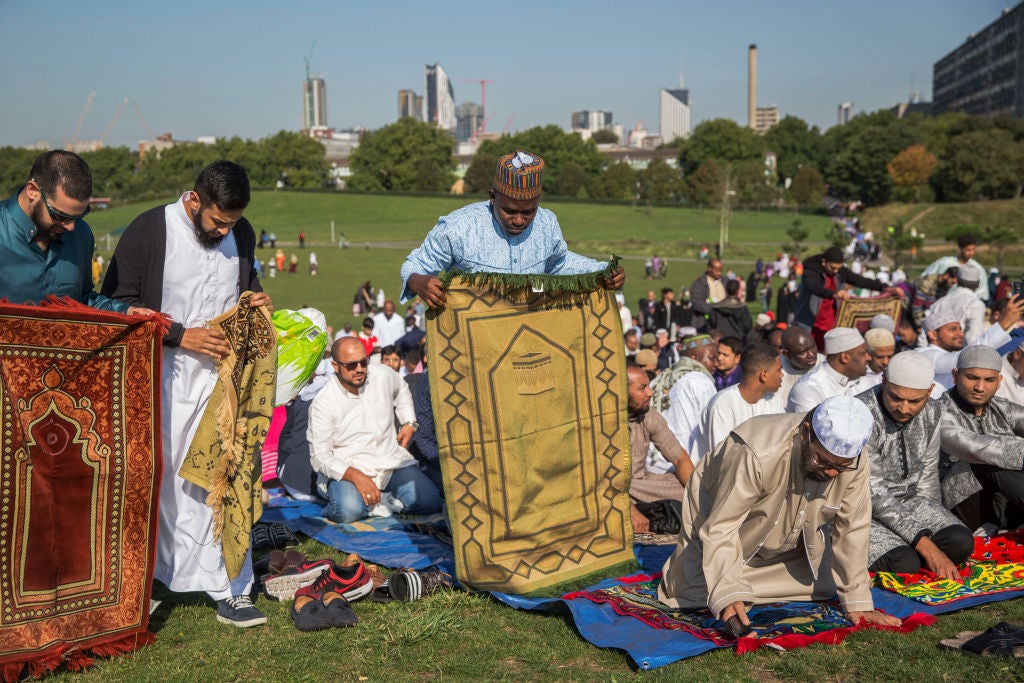
The tensions in Barking once seemed peripheral to London. No longer. Siddique knows some conservative Muslims in Ilford scorn his support for police. He also knows that the growing crowds at his mosque, like the rising numbers of Muslims in the city, terrify some of his white British neighbours.
“We get both kinds of extremists,” Siddique said. “They both espouse the same garbage – and in the middle is us.”
Fear of a Secret Mosque
Two years ago, the borough council approached Siddique with a proposal. It would make available the empty grounds of a former pharmaceutical factory if Siddique could raise money to build a cricket training facility. It was seemingly a win-win – a sports complex that would be open to the public, to be built at no public cost. Except that the plans, as with many public buildings in Britain, included a quiet room for prayer.
And that the empty property was in Dagenham, under the watchful eyes of Harris.
“I almost fell out of my chair,” Harris said of the moment he read of the prayer room in the planning application. “There would be room for thousands of Muslims.”
He started a campaign against the project, with one rally at a local pub and another where one of his supporters waved a copy of the Quran to show what they were fighting. At one point, Harris called Siddique to accuse him of trying to build a new mosque in Dagenham.
“You have turned it into a political football,” Siddique responded, and withdrew the offer.
The factory grounds are still empty, a point of pride for Harris. On a recent day, he steered his white Kia past squat row-houses and shuttered stores in Dagenham in a tour of his resistance to what he calls “the Muslim plan” for a “huge march of mosques.” He passed two Muslim community centres that he suspected, without basis, of hiding secret houses of worship, as well as a long-closed pub where a Muslim entrepreneur had opened a banquet hall that he found suspicious.
At 51, Harris owns a service station and leads the local branch of the UK Independence Party, or UKIP, which helped drive the Brexit campaign. Nativism has a long history in Barking and Dagenham. Neo-Nazi skinhead gangs roamed its streets in the 1970s, and in local elections in the 2000s, the far-right British National Party won about 20 per cent of the vote.
For decades, Dagenham was dominated by a Ford factory, which once employed as many as 40,000 people, but the company moved its last production line abroad in 2002. Other big manufacturers followed. The white British population fell from 81 per cent in the 2001 census to 49 percent in 2011 (across London, it’s 45 percent).
Many other businesses have closed. The pub across the street from Harris’s service station is now an African grocery.
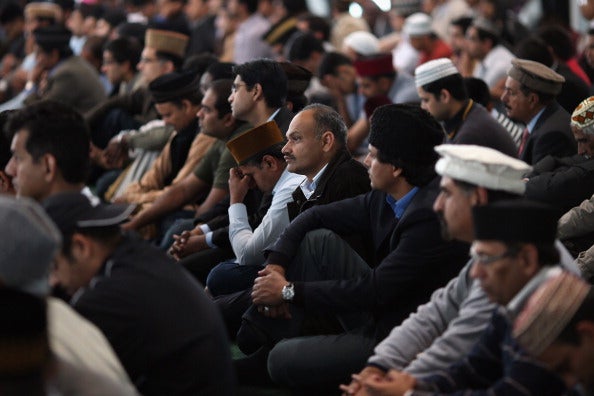
In the Eastbrook, around the corner, dozens of patrons, all white, said they had voted for Brexit to stem the influx of Muslims.
“The culture has changed completely,” said Mark Stubbs, 59, a roofer. “The English, traditional people are just not there anymore.”
“It is getting frightening,” he said. “On a Friday afternoon there are Muslims coming out of the woodwork. In 15 or 20 years, this will be a Muslim state completely. Look, the mayor of London is a Muslim! If nothing is done about it, they are going to be running this country.”
Harris said white British natives like himself were “an endangered species” in London, making the borough “the front line” of a battleground.
Asim Khan, a Pakistan-born financial adviser who clashed with Harris at a public hearing over a Muslim community centre, said, “He is trying to do what he believes will protect his people.
“We are trying to tell him, ‘Hey, we are the same people,'” Khan continued. “'If something happens to the UK, we will be with you by your side to protect it!'”
But Brexit has isolated the communities, he said. “We can see an unseen wall being built.”
Margaret Hodge, a member of the Labour Party who represents Barking in Parliament, said that at open coffee hours with constituents after Brexit, she immediately began hearing: “'Oh, Margaret, it is all right. We have got our country back.'”
“That is code for: Barking and Dagenham will go back to what it was in the 1950s – predominantly white – which of course is not going to happen,” she said.
Them Versus Us
Before his arrest last year, jihadi recruiter Choudary sometimes attended prayers at Al Madina. He would turn up every two or three months – to the horror of Siddique, who feared that teenagers might be vulnerable to his message.
“We would watch him like a hawk,” Siddique said. He knew some at Al Madina sympathized with Choudary’s group, Al Muhajiroun, or “The Emigrants,” which has been linked to the enlistment of fighters for the Islamic State in Syria.
Choudary never stuck around long enough for a confrontation. But the wave of anti-Muslim sentiment around last year’s Brexit vote and this year’s terrorist attacks has only made recruiters more dangerous, Siddique said, by arming them with new evidence to argue that the West is at war against Islam.
“All the young people hear is, ‘Muslims are terrorists,'” Siddique said. “They are always stopped by the police. They are growing up under suspicion, with a sense of alienation,” he added. “Half of the belief system of these radicals is, ‘It is them versus us.'”
Before retiring two years ago, Siddique was one of the first Muslims at Scotland Yard. His friends, and initially even his father, disapproved. Fellow police officers repeatedly super-glued his car locks. Colleagues sometimes called him by an ethnic slur for Pakistanis, while one senior officer nicknamed him “Osama bin Laden.”
“It was abhorrent, we would say now,” said Gary Copson, a retired London police commander who praised Siddique’s work. “But there was a kind of casual racism in our society that spilled over into the police.”
Today, Siddique keeps flyers in the mosque lobby to remind prayergoers of a religious duty to report signs of radicalism to a confidential police hotline. Yet he also clashes with police over the Home Office’s main counterterrorism program, Prevent. The program requires teachers, social workers and other government employees to notify a local coordinator – typically a former police officer – about any Muslim who matches a checklist of “warning signs.”
British Muslims often accuse the program of targeting them for domestic surveillance.
“Concerned parents come to us and say, ‘I don’t want to go to the police; the Prevent program will tag my child,'” he said.
In 2014, Siddique passed the local community liaison officer a tip about Butt, then a young immigrant from Pakistan. He was “radicalising youngsters and up to no good,” Siddique said.
Butt had appeared the same year in a television documentary, The Jihadi Next Door, standing by a preacher who declared that a black jihadi flag was “going to be on 10 Downing Street.”
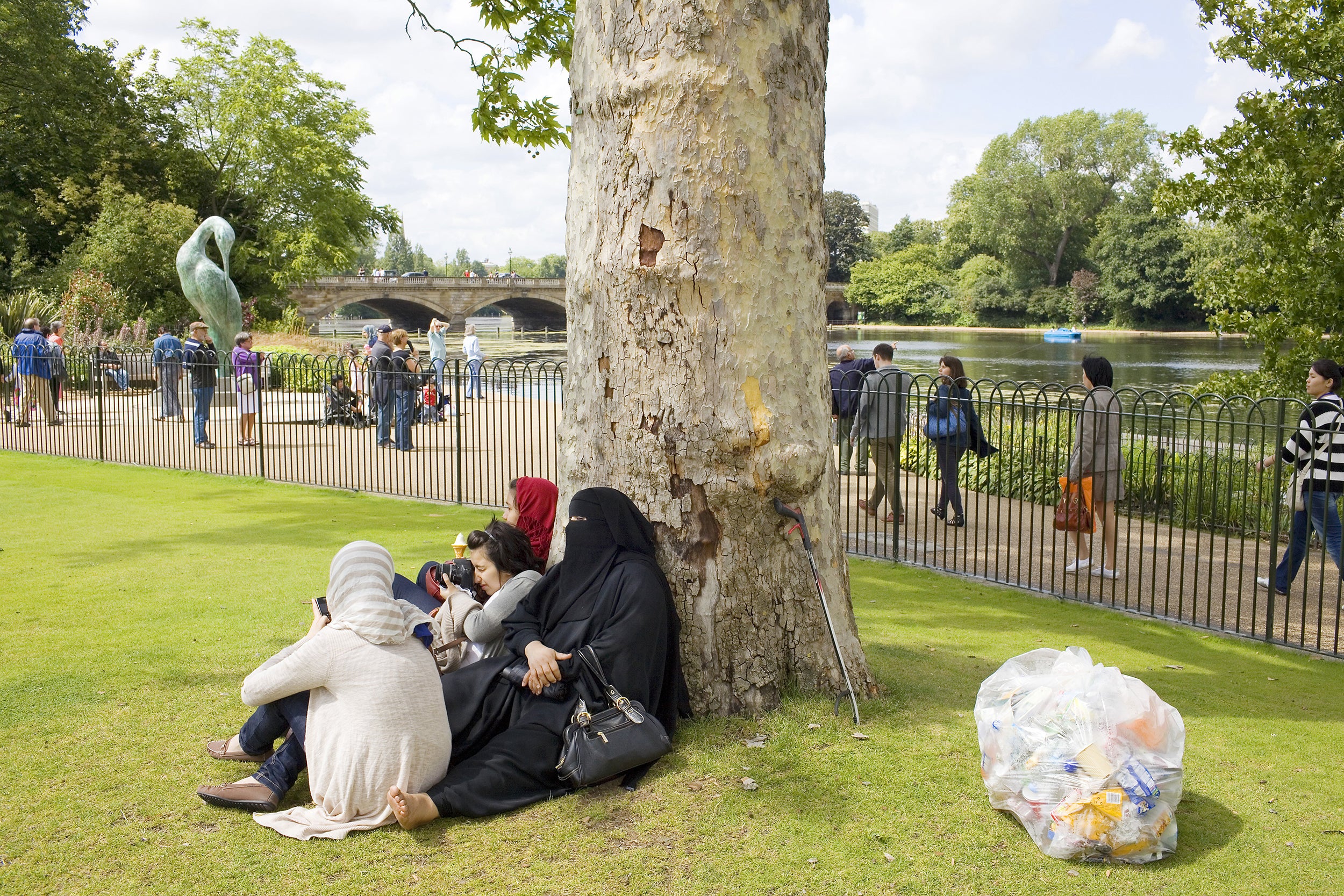
But police did nothing – until, 3 June, Butt led the deadly London Bridge attack.
So when a police officer turned up to press for information – “community cohesion is a two-way street,” the officer told Siddique pointedly – he nearly threw her out. “This is a one-way street where we are giving you information,” he said he told her, “and you are giving us nothing!”
Slurs and Spitting
Sixteen days after the London Bridge attack, a man driving a van ploughed over Muslims leaving a mosque in North London. One person died and nine others were injured.
“I want to kill all Muslims,” the van driver had shouted.
During the same period, half a dozen women in headscarves told Siddique they had been spit upon on the street. Vandals scrawled slurs on houses and cars, and a wave of anonymous threats arrived at the mosque.
“We had ladies who were called ‘terrorists’ or ‘Paki,’ or told to go home,” Siddique said. “It has become something that, as a Muslim, you just have to accept.”
He complained that local police waited eight days to show up. “I had to call our member of Parliament to get them here,” he said. “I had to hire a private security firm to protect the mosque at night during Ramadan.”
Today, some at Al Madina dismiss the surge in hostility as an anomaly. “People hear things about Muslims in the media and say, ‘Let’s kill Muslims,'” said Khalid Salem, 36, an Uber driver who was born in Egypt. “But London is different than any other place. We feel like our roots are here. We feel proud of London.”
Yet after a terrorist attack in August in Barcelona, Spain, Siddique took his own precautions. He stationed nine young men in high-visibility vests in the streets at night. The mosque has started formal security training for volunteers.
Still, Siddique said, he was born in Barking, and he is not going anywhere. “Do I feel scared walking down the street?” he said. “No, London is my home.”
© New York Times
Join our commenting forum
Join thought-provoking conversations, follow other Independent readers and see their replies
Comments